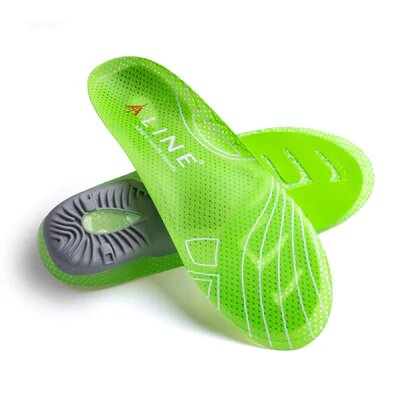Importance of Insoles in Work Shoes
Insoles for work shoes are a crucial component of work shoes, providing the support and comfort needed during long hours on your feet. They help alleviate common issues like foot pain, fatigue, and posture problems. By distributing pressure evenly across your foot, insoles reduce strain on joints and muscles, making workdays less taxing on your body.
Moreover, they improve shoe fit, reduce slipping, and enhance cushioning. For professionals who spend extended periods walking, standing, or lifting, the right insoles can prevent conditions such as plantar fasciitis and arch pain. Investing in quality insoles isn’t just about comfort; it’s about maintaining long-term foot health and overall productivity.

Types of Insoles for Work Shoes
Choosing the right insoles for work shoes depends on your specific needs and job requirements. Orthotic insoles provide custom support for those with foot abnormalities or conditions like flat feet. Cushioning insoles focus on enhancing comfort, while gel-based designs offer superior shock absorption for high-impact activities.
There are also specialized insoles for arch support, designed to accommodate high, medium, or low arches. Memory foam insoles mold to your foot shape, providing personalized support. Understanding these types helps ensure you pick an option tailored to your work environment and daily demands.
Benefits of Using Insoles at Work
Insoles for work shoes provide a range of benefits for workplace footwear. They improve posture by aligning your feet correctly, reducing back, neck, and hip pain. Enhanced arch support minimizes strain on your feet, which is especially helpful for jobs requiring long periods of standing.
They also reduce pressure points, preventing blisters and calluses. Furthermore, insoles absorb shock, protecting your joints from impact during high-movement tasks. Their sweat-wicking and anti-odor properties keep your feet fresh and dry, enhancing comfort throughout the day.
Signs You Need New Insoles
Worn-out insoles for work shoes often show visible signs like flattened foam, tears, or unpleasant odors. However, there are subtler indicators too. If you’re experiencing increased foot pain, reduced cushioning, or slipping within your shoes, it’s likely time for a replacement.
Insoles typically last between six and twelve months, depending on usage. Frequent replacement ensures consistent support, improving the longevity of your shoes and maintaining optimal foot health. Paying attention to these signs helps prevent discomfort and injuries caused by inadequate support.
Custom vs. Over-the-Counter Insoles
Custom orthotics are tailored to your unique foot structure, addressing specific needs like bunions, plantar fasciitis, or high arches. These are ideal for individuals with severe foot issues or injuries.
Over-the-counter insoles for work shoes, on the other hand, are widely available and cater to general needs. They are cost-effective and come in various styles, from arch-supporting designs to memory foam options. While custom insoles provide precision, over-the-counter options are suitable for those seeking affordable, versatile solutions.
Best Materials for Work Shoe Insoles
The material of insoles for work shoes significantly affects their performance and durability. Memory foam provides excellent cushioning and molds to your foot shape, while gel insoles excel in shock absorption.
EVA foam offers lightweight, durable support, making it a popular choice for work environments. Leather insoles are a premium option, providing moisture-wicking and breathability. Selecting the right material ensures maximum comfort and longevity.
Insoles for Standing All Day
Jobs requiring prolonged standing can lead to severe foot and leg fatigue. Insoles for work shoes designed for all-day standing offer enhanced arch support and cushioning. They reduce pressure on your feet and prevent overpronation.
Look for options with firm support, deep heel cups, and shock-absorbing materials. These features keep your feet aligned and comfortable, reducing the risk of aches and injuries caused by prolonged standing.
Insoles for Heavy-Duty Work Boots
Workers in construction, manufacturing, or similar fields need insoles that can withstand rigorous conditions. Heavy-duty insoles often feature reinforced arches, deep heel cups, and durable materials.
These insoles for work shoes also provide shock absorption for demanding environments, reducing strain on joints during activities like lifting or climbing. Investing in sturdy insoles ensures optimal foot support and protection in challenging work settings.
Insoles for Office Work Shoes
For office professionals, insoles for work shoes that focus on comfort and posture are ideal. Memory foam or gel insoles are excellent choices, providing lightweight support without adding bulk to formal footwear.
Additionally, anti-fatigue insoles help reduce discomfort from sitting or minimal walking. Their sleek design ensures a snug fit, maintaining the professional look of your office shoes while enhancing comfort.
How to Choose the Right Insole for Your Job
Assessing your daily activities is key to selecting the right insoles for work shoes. Consider whether your job involves standing, walking, or heavy lifting. Evaluate your arch type, foot conditions, and shoe style.
Match your needs with insole features, such as cushioning, arch support, or shock absorption. Testing insoles for fit and comfort ensures you make the best choice for your work environment and personal preferences.
Maintaining and Cleaning Your Insoles
Proper care extends the life of your insoles for work shoes. Remove them regularly to air out and prevent moisture buildup. Hand wash them with mild soap and water, avoiding harsh chemicals that may degrade the material.
Allow insoles to dry completely before reinserting them into your shoes. Regular cleaning not only prolongs their lifespan but also maintains hygiene and odor control.

FAQs
What are the best insoles for arch support?
Insoles with firm yet flexible arch support, such as orthotics or gel-based designs, are ideal for providing relief to high or low arches.
How do I know if my insoles fit correctly?
Your insoles should align with your shoe’s contours, providing snug support without causing discomfort or slippage.
Can I use the same insoles for different work shoes?
Yes, as long as the insoles for work shoes fit well and provide the necessary support, they can be used interchangeably across similar shoe types.



